Unbearable suffering in life: looking at life and death from the Schiavo case
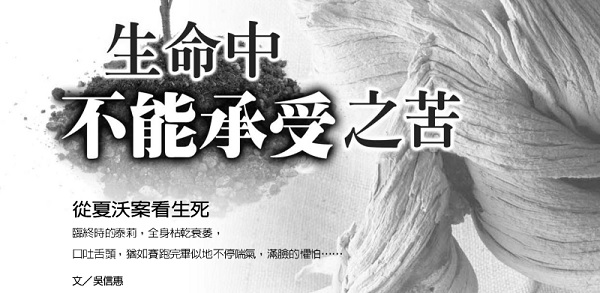
In the Pinellas County Nursing Home in Florida, Terri Schiavo, an unconscious patient who had been bedridden for fifteen years, passed away on March 31, 2005, at the age of forty-two.
The death of a patient like her should be the inevitable result that relatives and friends around her must accept when she is critically ill, and it is also the most immediate regret. However, the events that occurred before and after her death triggered intense comments and discussions on the meaning of her life from all walks of life, including law, medicine, religion, and politics. The many controversies that have spread out seem to be complicated. What is going on? What does her incident have to do with you and me?
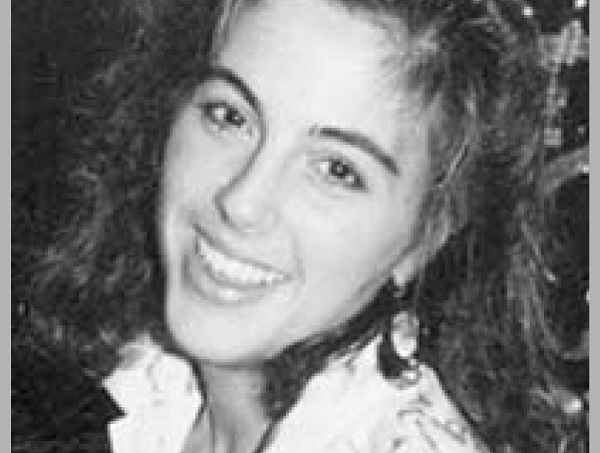
▲Terry before she got sick.
From onset to diagnosis
Terry was born in 1963 and grew up in a suburb of Philadelphia, Pennsylvania. Due to being overweight in high school, I participated in the "Nutri System" to lose weight and successfully lost 55 pounds. However, due to improper diet control, I also had a long-term tendency to anorexia. (Note 1)
After marrying Mike Schiavo in 1984, Terri moved to St. Petersburg, Florida. On the morning of February 25, 1990, Terry collapsed due to heart failure. When emergency personnel arrived, they found that she was unconscious, her pulse could not be measured, and her breathing had stopped. Emergency personnel performed cardiopulmonary resuscitation on her, and after sending her to the hospital, they performed the necessary intubation and tracheostomy surgeries. However, Terry's long-term lack of oxygen caused brain trauma, causing severe damage to her perception, awareness, and sensory functions. At that time, she was only twenty-seven years old.
When Terri was first hospitalized, she was fed with a nasogastric tube. Later, she underwent surgery to install a gastric tube from the abdominal wall for feeding. (Note 2) The hospital cannot determine the main cause of Terry's heart failure. It may be long-term anorexia and improper diet, which caused low potassium in the serum. However, there is no clear evidence to confirm this statement; in fact, the intravenous surgery performed in the emergency Injections may also cause this situation. (Note 3)
More than two months after the onset of the disease, Terry went from a state of complete coma to a cycle of sleeping and waking up. She showed no repeated autonomous reactions or consciousness to her surrounding environment or her own situation, so the doctor diagnosed her condition as " Persistent vegetative state". (Note 4)
From seeking medical treatment everywhere to terminating treatment
In November of that year, Mike transferred Terri to San Juan, California, for an experimental treatment and implanted a stimulator in the nerve bed of the brain. Unfortunately, the treatment was unsuccessful. (Note 5) Terri was transferred to another hospital. Returned to a rehabilitation hospital in Florida for rehabilitation. These treatments included various neurological tests, speech and basic skills physiotherapy. This treatment and rehabilitation lasted until about 1994. At this time, the family and the hospital continued to insist on all aspects of treatment and rehabilitation.
However, Terry's attending physician and other neurologists are not optimistic about her recovery and progress prospects. They even think that Terry's condition is a persistent vegetative state and the possibility of improvement or recovery is extremely slim. However, her family members There was no objection to this diagnosis. During this period (1992), Mike filed a complaint with the court, accusing Terri's former obstetrician and gynecologist G. Stephen Igel of not paying attention to her anorexia symptoms caused by her weight loss while helping Terri with infertility treatment. As a result, Terry is now bedridden. The court ruled in favor of Mike. Mike was awarded a compensation of NT$300,000 for "losing his spouse", and Terri herself was awarded a compensation of NT$700,000 for medical malpractice. This compensation was set up in a trust fund by the court to be used for medical expenses. (Note 5)
In 1994, after more than four years of various treatments, rehabilitation and experimental treatments, there was still no progress in Terry's condition. At this time, Mike believed that Terry could not recover or even improve her condition, so he transferred her to a nursing home. Over the objections of Terry's parents and the hospital, he insisted on stopping all treatments, including emergency first aid measures.
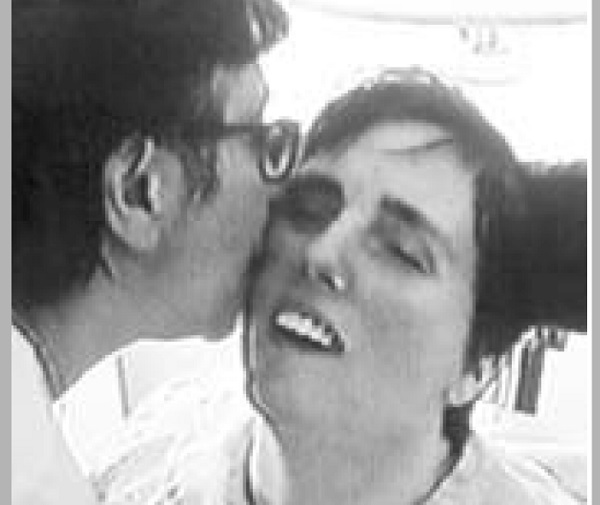
▲Terry’s parents went to visit the doctor.
Whose hope is this?
In May 1998, Mike applied to the court for permission to remove Terri's gastric tube. Although this move was strongly opposed by Terri's parents, the Schindlers, Mike believed that Terri's condition was not likely to improve and she would remain in a vegetative state for a long time. The situation was not the way Terri wanted to live.
Dr. Richard Peares, Terri's legal medical guardian at the time, believed that the actions taken by Mike were related to Terri's inheritance rights. Because Terry did not make a living will before she became ill; at the same time, Dr. Pierce had doubts about Mike's personality and believed that Mike's unwillingness to transfer custody to the Schindlers was also related to property inheritance. (Note 6)
Various reasons, such as: What is the definition of vegetative state? The gap between medical and legal definitions; various medical policies, doctors insisting on different diagnoses... etc. Therefore, the court must hold a hearing to decide what kind of arrangement is closest to her personal wishes. From then on, a series of court review proceedings began that lasted for more than ten years [please refer to the "Schiavo Trial Procedure List" on page 30]. Finally, the court ruled to allow Mike’s application: to remove Terry’s stomach tube!
Under the "protection" of the guards assigned by the court, Terry passed away on March 31, 2005, after more than ten days of no feeding or watering. Terri was buried in Clearwater, Florida. In addition to Terri's date of birth and death, Mike's insistence - "I kept my promise" - was added to the tombstone.
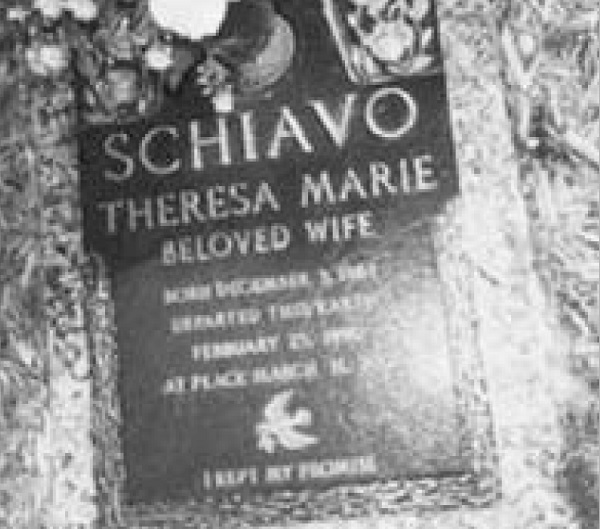
▲Terry’s grave.
Is there any dignity?
As the saying goes, "Long-term illness leads to no filial son." Someone in the family is seriously ill, and there is little hope for recovery. This kind of long-term struggle and the suffering of living day by day is not something ordinary people can understand. In this "unsympathetic" generation, during the first three or four years that Terri was bedridden, her husband, Mike, tried his best to seek medical treatment for her, which may be regarded as "the most benevolent" in the eyes of the world. However, from the time he first applied to the court to remove the gastric tube, to the final verdict, and until Terry's death, after more than ten years, Mike has always stated that it was Terry's own intention and that he must "follow through". Fight for her last wish and let her die with dignity! What does it mean to die with dignity? What does it mean to live a meaningful life?
In Terry's case, apart from losing basic consciousness, her body is still healthy. All the organs in her body are functioning naturally and she does not need to rely on a "life support machine" to assist her breathing or heartbeat. She suffered a brain injury and died She lost her ability to swallow, and a gastric tube was her only aid. Basically, the court ruled that it was allowed to remove the gastric tube and allow her to die naturally due to malnutrition, but this "natural death" was death from hunger and thirst! Terri passed away more than ten days after the gastric tube was removed!
For more than ten days, under the surveillance of the bailiff, Terri could not touch even a drop of water. Fr. Frank Pavon, who was with her before her death, said that Terri's death was not as "peaceful" as Mike's lawyer said. "and die", but suffer from unbearable thirst and hunger and die! When Terry was dying, her whole body was withered and shriveled, her tongue was sticking out, she was panting as if she had finished a race, and her face was full of fear... (Note 7)
How can such a method of death be considered a peaceful and natural "euthanasia"? Did Terry really die with dignity as Mike asked?
The pupils of God's eyes
The Schiavo incident caused a heated uproar across the United States, and it seems to have settled. This incident has stirred up many social issues and controversies. It is truly thought-provoking: What is the meaning of human life? Can a judge judge a person’s life or death based on legal definitions? To what extent do state governments, the federal government, and even the president need to intervene in a case like this? Newspapers and magazines have published many discussions with different opinions: the medical community’s definition of vegetative state; the controversy over Terry’s illness through various experimental treatments and clinical studies; the importance of living wills... etc. However, what attitude should Christians have? To face such an incident?
As Christians, we know that life and death are not in our own hands. The Bible says: “No one has authority over life, to retain it, and no one has authority over the death…” (Ecclesiastes 8:8) Even though the day we were reborn and saved, we have given our sovereignty to the Creator and Lord of all things. God of all things, in fact, “Your eyes have long seen my unformed constitution, and you have written them in your book before I have passed one of the days you have appointed” (Psalm 139:16). The meaning of our lives lies in God, in how the Creator uses us as instruments in His plan to accomplish His deeds, because His ways are higher than our own ways and His thoughts are greater than our independent thoughts.
Christians really have no right to judge that their lives are meaningless - some people feel that they have not contributed to society because they are lying in bed, so they might as well "get a break" on their own! We are all weak, and we really cannot bear the suffering of our loved ones who cannot afford to fall ill. It is like being surrounded by dark clouds in a storm, and there is no window for the sun to show its face. If we cannot see God’s grace but have to face our unconscious loved ones every day, we will surely complain and cry to God, and even silently pray to God in our hearts, asking God for the patient to see the Lord as soon as possible.
However, everything has God's good will. We really cannot judge a patient lying in bed that he has lost the meaning of life.
For Terry, being able to sit down with the Lord in heaven is certainly far better than being fed through a stomach tube every day. However, “because what happened to me came from You, I remained silent” (Psalm 39). Verse 9) Moreover, God protects us like the pupils of his eyes. He will never turn a blind eye or close one eye to see Terry suffer. In such a situation, although the body lying on the bed can only produce plant effects and has no consciousness or consciousness in medical terms, the human soul cannot be tested and diagnosed by medicine. Perhaps Terry's soul has already flown with God. "If I ascend to heaven, you are there; if I make my home in Hades, you are there. If I spread my wings of morning and fly to the ends of the sea to live there, your hand will guide me..." (Psalm) Psalm 139:8-10).
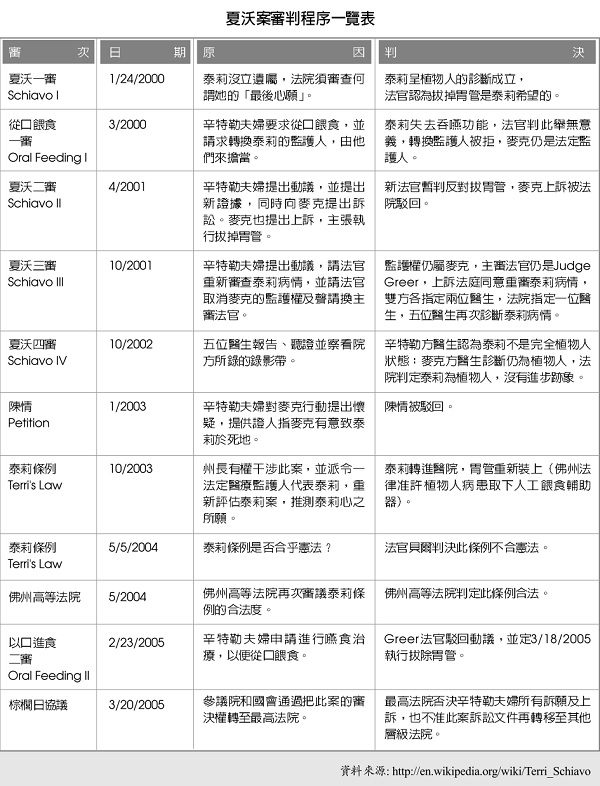
Comparison and reflection on another "Tellie case"
It is an arduous and unbearable road to face illness together with your loved ones, to fight against the war for a long time, to share hardships and suffer together. If you don't have personal experience, talking about suffering is like talking about it on paper. You may be able to "understand" it, but you won't be able to "experience it". Sister Su Xinru, who just moved back to the United States last year and currently lives in New York, has personal experience.
More than three years ago, Su's mother and Su's father went to church together. Su's father suddenly suffered a myocardial infarction while parking the car. Although he recovered signs of life after being sent to the hospital for emergency treatment, his brain was deprived of oxygen and he lost consciousness and was in a vegetative state. The Su family relied heavily on God when the incident happened suddenly and was in extreme panic; the brothers and sisters in the church also closely united because of the incident and stayed with Su's mother for a long time. Three months later, Su’s father was discharged from the hospital and went home to recuperate. God had already prepared everything for them. Electric beds, air mattresses, sputum suction machines, and other equipment “just happened” to be scattered at the brothers and sisters’ homes. They were put together at the same time, and it happened that Su’s father was recuperating. required. A famous brain doctor even called Su's mother to encourage and comfort her: "Don't give up! There is always a chance to wake up!"
Hope in making tea
It has been more than three years now. In the eyes of outsiders, the condition has not improved or improved. However, Su’s mother and children have been taking care of her wholeheartedly without getting tired. Several couples who are familiar with the Su family still go to accompany Su's mother to "make tea" at Su's father's bedside every night, chat and pray together. This gathering ends at ten every night. Where can I find such friends? Without God's presence and support, how could human strength "sustain" it to this day?
When Sister Xinru talks about her father's illness, she always smiles, and her worries and pains are invisible. She has gone through adversity, and her patience makes her mature. What she sees on her face now is hope. This summer, her hope is that the whole family will return to Taiwan to visit the "Granny Marmot" and "Grandpa" her children call her. This plan is like the promotional content of a credit card advertisement-
Flight time: 18 hours Luggage carried: 8 large boxes
Air ticket price: $$$$
Visiting relatives: God’s grace is priceless!
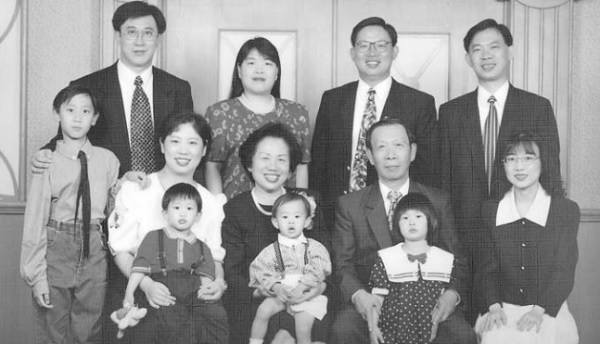
▲The Lord’s love unites the entire Su family to accompany their sick father in hope. The picture shows a family photo of his father before he became ill.
Echoes of the Schiavo case
The main reason why the Schiavo case was so heated was that Schiavo herself did not leave any relevant instructions. No one except her husband, Mike, had heard her opinions. Therefore, the court could only make a conclusion based on Mike's "one-sided words." If anyone else had listened to her wishes in this regard, the case would have been "unsuitable"! It can be seen that the living will, or the Healthcare Proxy, is really important in the law!
Many people make a living will to indicate whether they need emergency treatment or continue to receive life-sustaining assistance. From a Christian perspective, some of the contents of a living will can also be used to predict the future, as if one has already taken control of one's own future. A healthcare spokesperson is a designated relative who you trust and understands your life philosophy and beliefs. He can be your spokesperson when you encounter an unexpected situation and make decisions that are consistent with your personal beliefs based on the situation at that time. Legally speaking, a living will or health care representative should avoid resorting to court decisions to determine a person's life or death. In Terry's case, the judge sided with Mike based on legal regulations; however, handling things according to the law can sometimes feel really callous!
When we rethink the various social, religious and other issues brought about by Terry, please don’t forget to pray for the Schindlers. These heartbroken parents saw their beloved daughter sentenced to death in this way. Being powerless is such a cruel blow! I hope that the support and prayers from all walks of life will enable them to continue to move forward strongly.
When the world emphasizes the importance of "Quality of Life", please change your perspective and shine the spotlight on the true meaning of "Sanctity of Life"! No life can be judged as "worthless", let us go back to the beginning, the United States Declaration of Independence declared: "All people, infancy and in the womb, healthy, sick, young, The elderly, disabled, seriously ill, etc. all have their living rights that cannot be transferred.”
medical definition of death
In what state is a person diagnosed as dead by a doctor? Under what criteria can we conclude that a person is dead? According to modern medicine, death can be defined in three ways:
1. Heart-Lung Failure:
The most traditional and simplest definition is to see if the heart is still beating and the lungs are still breathing. From this point of view, Terry was healthy and alive before the gastric tube was removed. However, with today's medical advancement, human heart and lungs can rely on machines to assist in retaining signs of life. Therefore, some people leave a statement or make a living will to indicate whether they are willing to rely on machine-assisted life support.
2. Whole Brain Death:
This definition was proposed by the Ad Hoc Committee of Harvard Medical School in 1968. Hospitals were allowed to use this definition to diagnose patient death in 1980. Patients with complete brain death are similar to patients with cardiopulmonary failure. They cannot move or breathe on their own. Without artificial assistance, their heart and lungs have lost their function. As far as Terry is concerned, under this definition, she is still alive because she can sometimes move and breathe on her own. What's more, the judgment of complete brain death is not complete. Although it is "completely dead", there is a 20% chance, and sometimes there are still signs of activity in the brain.
3. Main functions: Higher-Brain Death:
According to this definition, a person is considered brain dead when part of the brain's functions that control perception, consciousness, and understanding are lost. In such a state of "death", even though other organs of the body continue to function, the person has no real meaning to live. It was at this point that Terry was sentenced to death. Supporters of this definition believe that what makes people unique lies in the function of their brains; without this function, what is the meaning of life? But then again, although the functions responsible for knowledge, awareness, and sensation have been lost, other parts of the brain and various organs of the body still function. In such a state, how can we conclude that death?
source:
Austin Cline, "When Did Terri Schiavo Die",
http://atheism.about.com/od/terrischiavonews/a/brain_p.htm
Notes/Footnotes
1. http://en.wikipedia.org/wiki/Terri_Schiavo#endnote_jhunewsletter Nair, Sandya. “Terri Schiavo case reveals the dangers of eating disorders,” The Johns Hopkins Newsletter, March 24, 2005
2. http://en.wikipedia.org/wiki/Terri_Schiavo#endnote_inital_medical-crisis
3. http://en.wikipedia.org/wiki/Terri_Schiavo#endnote_inital_medical-crisis
4. http://en.wikipedia.org/wiki/Terri_Schiavo#endnote_rehabilitation_efforts_and_the _malpractice_suit
5. http://en.wikipedia.org/wiki/Terri_Schiavo#endnote_rehabilitation_efforts_and_the _malpractice_suit
6. http://en.wikipedia.org/wiki/Terri_Schiavo#endnote_trialctorder02-00pdf Greer, George W., Circuit Judge. “IN RE: THE GUARDIANSHIP OF THERESA MARIE SCHIAVO, Incapacitated,” File No. 90-2908GD-003
7.http://en.wikipedia.org/wiki/Terri_Schiavo#endnote_PearseReport.3
8. Frank Pavone,Terry Schiavo's Final Hours,:An Eyewitness Account
http://priestsforlife.org
 Author profile
Author profile
Wu Xinhui, an international student in the United States after graduating from junior high school, is now a mother of three children and loves reading, traveling, music and other hobbies. Now lives in New Jersey, USA.
